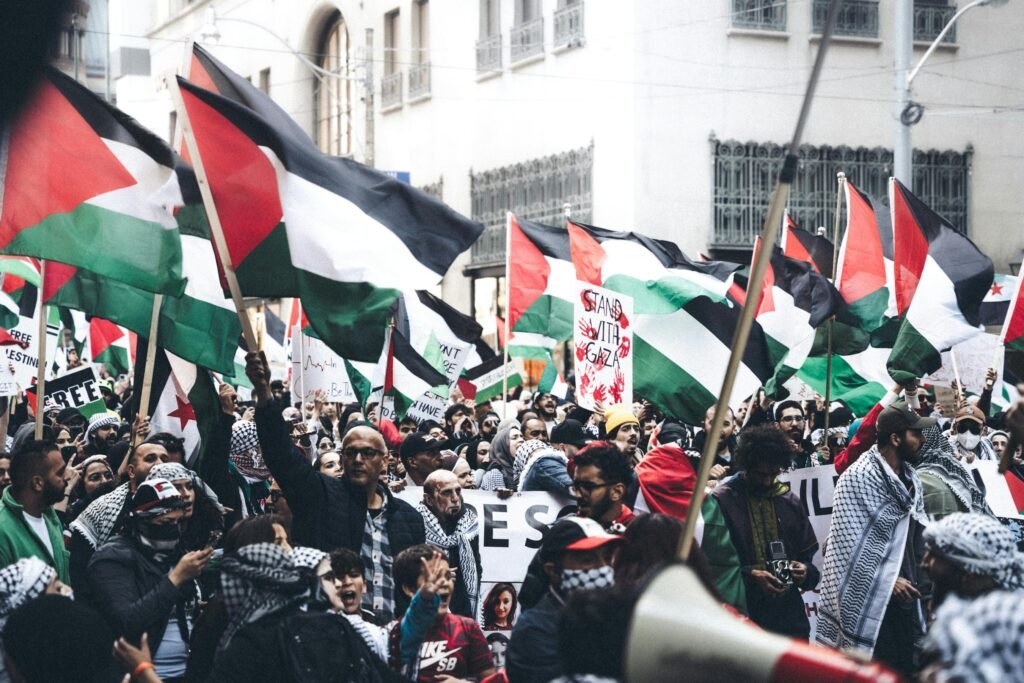The long-standing Israel-Gaza conflict has intensified dramatically, leading to a dire humanitarian crisis. In recent weeks, the situation has grown increasingly volatile as military actions and political unrest show no signs of abating. Airstrikes by Israeli forces targeting weapon smuggling routes along the Syrian-Lebanese border have added a new dimension to the conflict. These strikes are aimed at dismantling Hezbollah’s weapon-smuggling operations, allegedly supported by the Syrian regime, which Israel views as a significant threat to its security.
Meanwhile, within Gaza, the civilian population faces unprecedented hardships. International aid organizations report shortages of food, water, and medical supplies. Thousands of displaced families remain trapped amid the rubble of destroyed infrastructure, with limited access to basic services. Efforts to establish ceasefires have repeatedly faltered, escalating the toll on both sides.
Adding complexity to the crisis, regional players like Iran and Hezbollah are under scrutiny for their roles in exacerbating tensions. Israeli intelligence recently thwarted espionage activities linked to Iran’s Quds Force, highlighting the broader geopolitical stakes involved.
Diplomatic attempts to resolve the crisis have encountered significant challenges. The international community, including the United Nations, has urged restraint and a renewed commitment to peace talks. However, deep-seated animosities and conflicting political agendas continue to undermine progress.
As the world watches, the humanitarian cost grows, with many calling for urgent global intervention to alleviate the suffering and foster a sustainable resolution. This ongoing conflict serves as a stark reminder of the complexities of achieving lasting peace in one of the world’s most contentious regions
Humanitarian Toll Intensifies as Conflict Worsens
The humanitarian toll in Gaza continues to escalate, with over 15,000 reported casualties since the onset of the renewed conflict in October 2023. The destruction of critical infrastructure has left hospitals overwhelmed and schools unusable, plunging civilians into further despair. Access to food, water, and electricity is severely restricted under the ongoing Israeli blockade, amplifying the crisis.

The United Nations has described the conditions in Gaza as catastrophic, urging immediate international intervention. Aid convoys face significant barriers, with only sporadic deliveries making it through, and the needs far outweighing the supplies. Many residents are unable to flee due to closed borders, trapping them in the conflict zone.
Regional Instability and Broader Implications
Beyond Gaza, the conflict has inflamed tensions across the region. Israeli airstrikes along the Syrian-Lebanese border, aimed at dismantling Hezbollah’s smuggling operations, highlight the broader geopolitical implications. Analysts warn that these actions, coupled with increased activity from Iran-backed militias, risk drawing neighboring countries deeper into the crisis.
The international community remains divided. The United States and European allies continue to support Israel’s right to defend itself, while several Arab nations and humanitarian organizations have criticized the disproportionate impact on civilians. Protests worldwide reflect growing frustration over the lack of a decisive response to the worsening situation.
Calls for Peace Amidst a Deadlock
Efforts to broker a ceasefire have so far been unsuccessful, with both sides remaining entrenched in their positions. Israeli officials maintain that military action is essential to neutralize threats from Hamas and its allies, while Palestinian representatives call for an end to what they describe as collective punishment.
Peace advocates stress the urgent need for dialogue. UN Secretary-General António Guterres has called for immediate de-escalation, emphasizing the human cost of continued hostilities. However, with deep-seated mistrust and competing interests, the path to a negotiated solution appears increasingly elusive.
International and Grassroots Responses
Grassroots organizations and international NGOs are mobilizing to provide relief where possible. Fundraising campaigns and advocacy efforts are shedding light on the crisis, pressuring governments to act. In the meantime, Gaza’s residents endure unimaginable hardship, clinging to hope for a resolution that seems perpetually out of reach.
The Israel-Gaza conflict underscores the fragility of peace in the region and the devastating impact of prolonged warfare. As the crisis unfolds, the world watches, hoping for an end to the cycle of violence and a future of coexistence and stability.




















































Discussion about this post